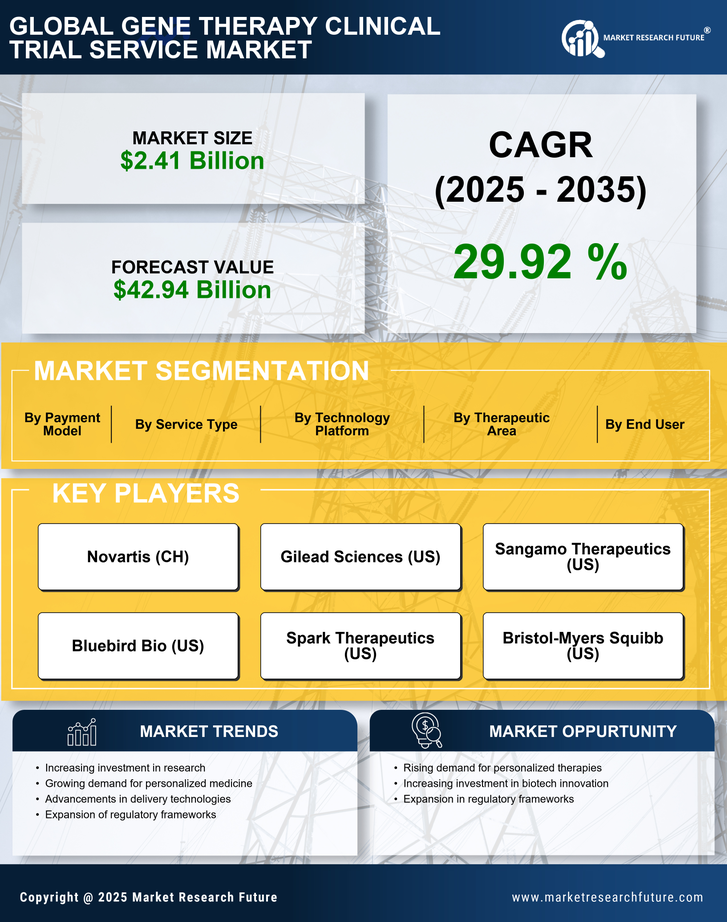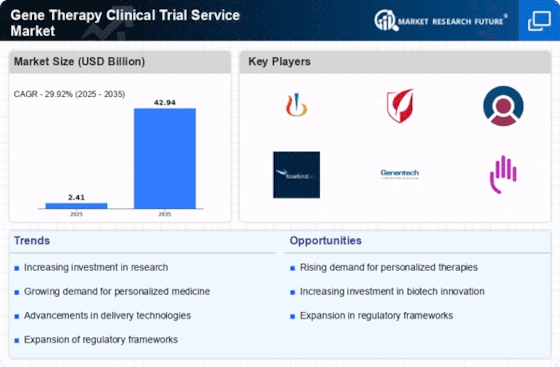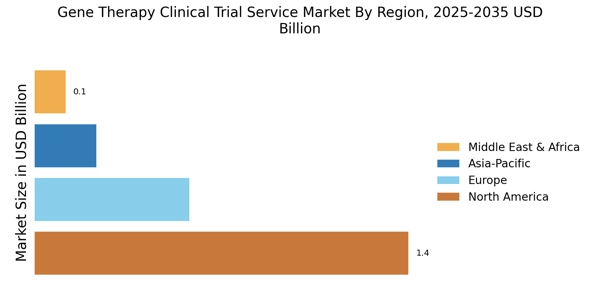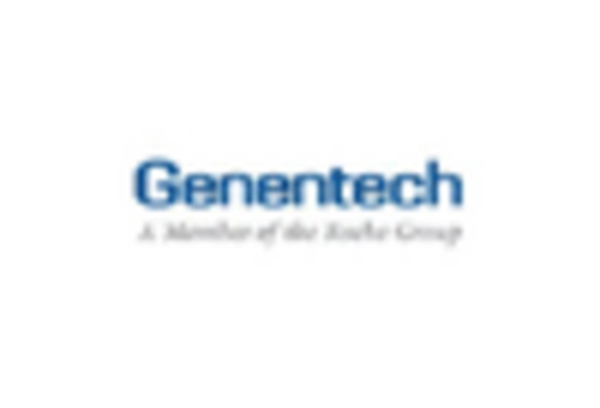Growing Investment in Biotechnology
The increasing investment in biotechnology is a significant driver for the Gene Therapy Clinical Trial Service Market. Venture capital funding for biotech firms has surged, with investments reaching over $20 billion in recent years. This influx of capital is primarily directed towards research and development of innovative therapies, including gene therapies. As investors recognize the potential of gene therapy to address previously untreatable conditions, the number of clinical trials is expected to rise. This trend indicates a robust pipeline of gene therapy products, which will likely enhance the Gene Therapy Clinical Trial Service Market as companies seek to validate their therapies through rigorous clinical testing.
Regulatory Support for Gene Therapies
Regulatory bodies are increasingly supportive of gene therapies, which serves as a catalyst for the Gene Therapy Clinical Trial Service Market. Initiatives aimed at expediting the approval process for innovative therapies have been implemented, allowing for faster patient access to groundbreaking treatments. For instance, the FDA has introduced programs such as Breakthrough Therapy Designation, which facilitates the development of therapies that address unmet medical needs. This regulatory environment encourages pharmaceutical companies to invest in gene therapy trials, thereby expanding the clinical trial landscape. As a result, the Gene Therapy Clinical Trial Service Market is poised for growth, driven by the favorable regulatory climate that promotes innovation.
Rising Demand for Personalized Medicine
The shift towards personalized medicine is significantly influencing the Gene Therapy Clinical Trial Service Market. Patients increasingly seek treatments tailored to their unique genetic profiles, which aligns with the principles of gene therapy. This demand for individualized therapies is prompting pharmaceutical companies to conduct more clinical trials focused on gene-based treatments. As of 2025, it is projected that personalized medicine will account for a substantial portion of the gene therapy market, with an estimated growth rate of 15% annually. This trend not only enhances patient outcomes but also drives the expansion of the Gene Therapy Clinical Trial Service Market, as stakeholders aim to meet the evolving needs of patients.
Advancements in Gene Editing Technologies
Recent advancements in gene editing technologies, particularly CRISPR and TALEN, are propelling the Gene Therapy Clinical Trial Service Market forward. These technologies enable precise modifications to genetic material, enhancing the efficacy and safety of gene therapies. The ability to edit genes with high accuracy has led to a surge in clinical trials exploring novel therapeutic approaches. As of 2025, it is estimated that over 50% of gene therapy trials incorporate these cutting-edge technologies, reflecting their growing importance in the field. This trend not only accelerates the development of new treatments but also attracts investment from biotechnology firms, further stimulating the Gene Therapy Clinical Trial Service Market.
Increasing Prevalence of Genetic Disorders
The rising incidence of genetic disorders is a primary driver for the Gene Therapy Clinical Trial Service Market. As more individuals are diagnosed with conditions such as cystic fibrosis, hemophilia, and muscular dystrophy, the demand for innovative treatment options intensifies. According to recent estimates, genetic disorders affect approximately 1 in 200 births, highlighting a substantial patient population in need of effective therapies. This growing prevalence necessitates the expansion of clinical trials focused on gene therapy, as stakeholders seek to develop targeted solutions. Consequently, the Gene Therapy Clinical Trial Service Market is likely to experience significant growth as pharmaceutical companies and research institutions invest in trials aimed at addressing these genetic conditions.


















